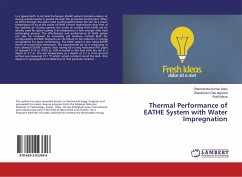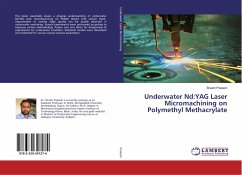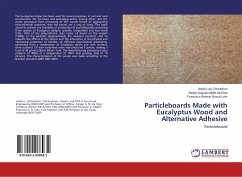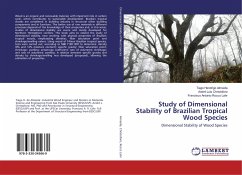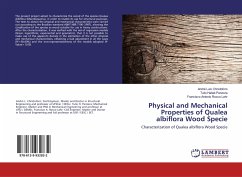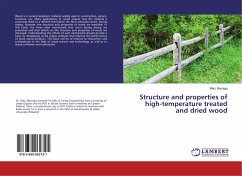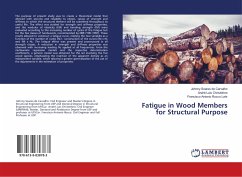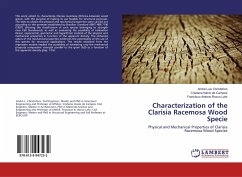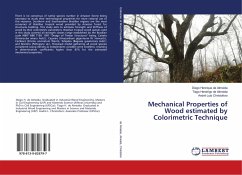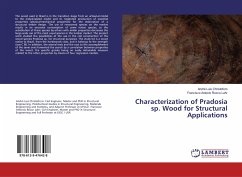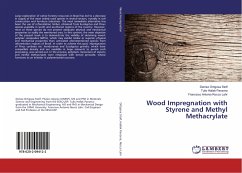
Wood Impregnation with Styrene and Methyl Methacrylate
Versandkostenfrei!
Versandfertig in 6-10 Tagen
43,99 €
inkl. MwSt.

PAYBACK Punkte
22 °P sammeln!
Large exploration of native forestry resources in Brazil has led to a decrease in supply of the most widely used species in several sectors, notably in civil construction and furniture industries. The most immediate alternative has been the use of reforestation timber, obtained from Eucalyptus and Pinus species available in south and southwest regions of the country. However, most of these species do not present adequate physical and mechanical properties to viably the mentioned uses. In this context, the main objective of the present book is to demonstrate the viability of obtaining wood-poly...
Large exploration of native forestry resources in Brazil has led to a decrease in supply of the most widely used species in several sectors, notably in civil construction and furniture industries. The most immediate alternative has been the use of reforestation timber, obtained from Eucalyptus and Pinus species available in south and southwest regions of the country. However, most of these species do not present adequate physical and mechanical properties to viably the mentioned uses. In this context, the main objective of the present book is to demonstrate the viability of obtaining wood-polymer composites (WPCs), which may exhibit similar or superior physical and mechanical properties than untreated aforementioned species from reforestation regions of Brazil. In order to achieve this goal, impregnation of Pinus caribaea var. hondurensis and Eucalyptus grandis, which have compatible density and are available in large amounts to permit such processing, was carried out. In the process, polymeric monomers of styrene and methyl methacrylate were employed with benzyl peroxide, whose functions as an initiator in polymerization process.



